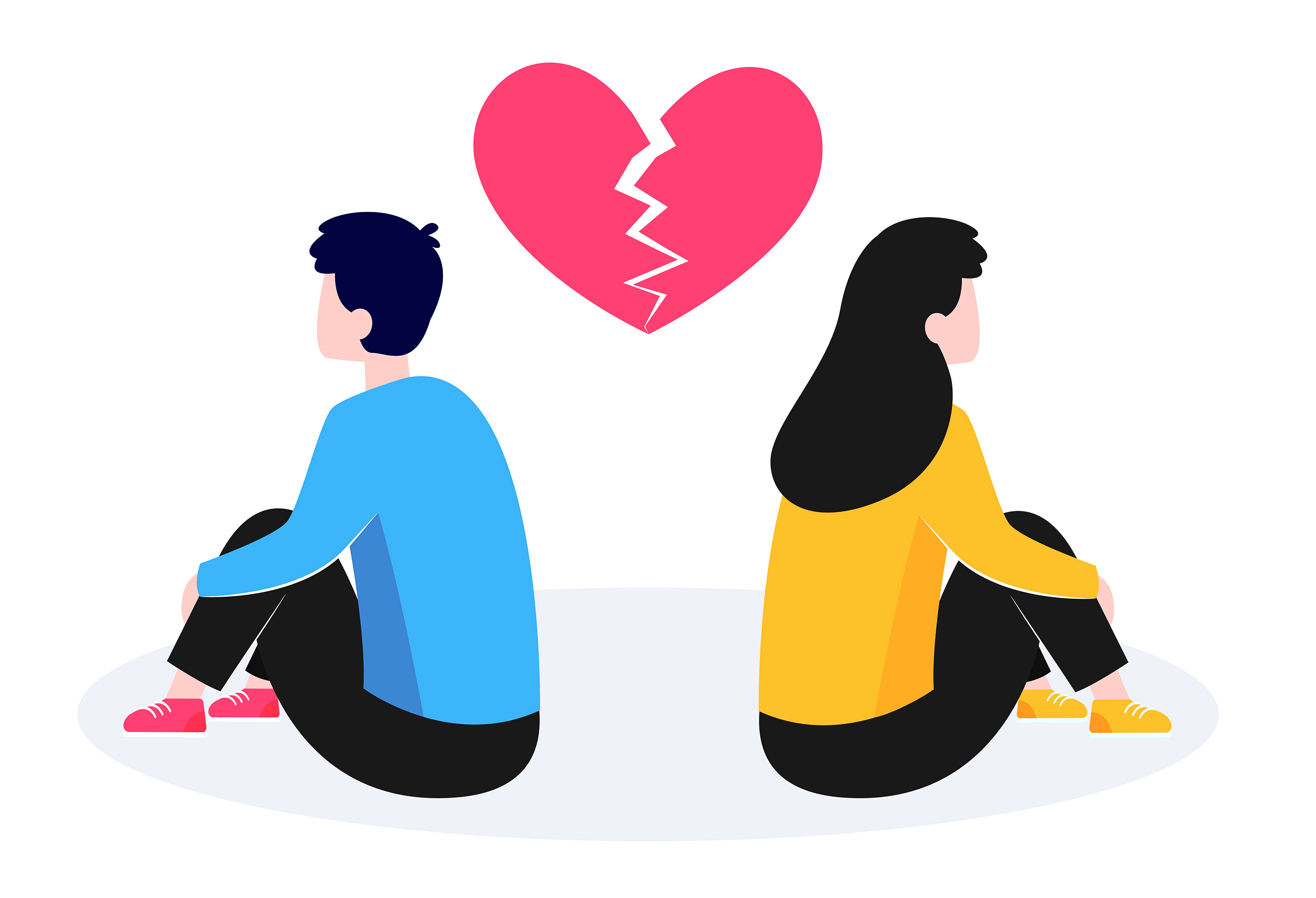How to do breaking up well
In the age of social media, how do you end a relationship?
At A Glance
- The journey towards self-respect often involves difficult choices, and severing ties is one such poignant decision.
By JACQUELINE LUCERO

In the ever-evolving landscape of relationships, the phrase "cutting people out of my life" has gained both prominence and a certain societal stigma. It's not a declaration of disdain or a disregard for others, instead, it's a profound act of self-respect. Navigating the tumultuous sea of breakups, the term "hiwalayan" in Filipino, once a simple word, now carries the weight of emotional turbulence. Though it might be disheartening, there comes a time when choosing oneself becomes imperative for personal wellbeing and sanity.
The decision to sever ties with individuals doesn't necessarily stem from a lack of affection or appreciation. It's a conscious choice to prioritize self-respect. In the intricacies of human connections, the lines between love, friendship, and self-preservation often blur. So, what does it truly mean to cut someone out of your life, and why has it become a vital aspect of maintaining one's mental and emotional equilibrium?
The evolution of relationships: A shifting paradigm
In the digital age, relationships undergo constant transformation. The dynamics of friendships, romances, and even familial ties are subject to change, influenced by an array of external factors. The once-universal concept of lifelong bonds has given way to a more fluid understanding of connections. People change, circumstances shift, and as a result, the way we approach relationships must adapt.
In Filipino culture, the term "hiwalayan" carries a unique emotional charge. It goes beyond the mere act of parting ways; it encapsulates the shared history, memories, and emotions tied to the relationship. The decision to separate becomes a nuanced process, filled with complexities that transcend mere linguistic definition.
Respecting the sanctity of self: A necessary act
Choosing to cut someone out of your life is not an act of callousness but an acknowledgment of the sanctity of self. It's a decision made in the pursuit of mental and emotional wellbeing. The journey towards self-respect often involves difficult choices, and severing ties is one such poignant decision.
Recognizing toxicity: A prerequisite for growth
Toxic relationships can permeate various aspects of our lives, impeding personal growth and well-being. Whether it's a friendship, a romantic liaison, or a familial connection, toxicity manifests in many forms. The realization that a relationship is detrimental to your mental health is the first step towards self-preservation.
The art of letting go: A gradual unraveling
Letting go is not an impulsive act but a gradual unraveling of ties that no longer serve a positive purpose. It involves introspection, self-awareness, and the courage to prioritize personal happiness. The process may be painful, but it's a crucial investment in one's long-term emotional health.
Embracing change: A catalyst for personal transformation
Cutting people out of your life signifies a willingness to embrace change. It's an acknowledgment that growth often involves shedding old layers to make way for new beginnings. The discomfort of separation pales in comparison to the potential for personal transformation that lies ahead.
Navigating guilt: An inherent struggle
Guilt often accompanies the decision to cut ties, especially if the relationship was once significant. It's essential to recognize that prioritizing your well-being doesn't make you selfish; it makes you human. Navigating the guilt requires self-compassion and an understanding that choosing yourself is not a betrayal.
Setting boundaries: A form of self-love
Cutting ties is not synonymous with burning bridges. It's about setting boundaries that safeguard your mental and emotional health. Establishing clear limits is an act of self-love, signaling that you value yourself enough to protect your inner peace.
The Ripple Effect: Impact on other relationships
The decision to cut someone out of your life can send ripples through other connections. Friends may find themselves caught in the crossfire, forced to choose sides. Navigating this ripple effect requires open communication and an understanding that personal choices shouldn't dictate the choices of others.
Embracing solitude: A path to rediscovery
In the aftermath of separation, solitude becomes an opportunity for self-discovery. It's a chance to reconnect with your own aspirations, passions, and values. Embracing solitude is not a sign of weakness; it's a courageous stride towards understanding and loving oneself.
Conclusion: A journey towards self-fulfillment
In the intricate dance of relationships, the choice to cut someone out of your life is a delicate step towards self-fulfillment. It's a declaration that your well-being and sanity are non-negotiable. As the definition of connections continues to evolve, so does the importance of choosing oneself in the pursuit of a fulfilling and balanced life. In the rich history of human relationships, the threads of self-respect weave a narrative that honors the essence of who we truly are.